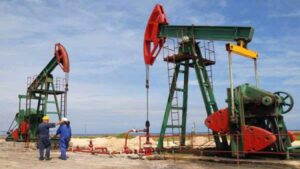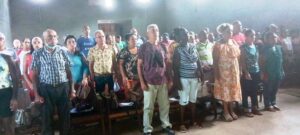Martí’s experiences in biodigesters presented at National Workshop (+photos).
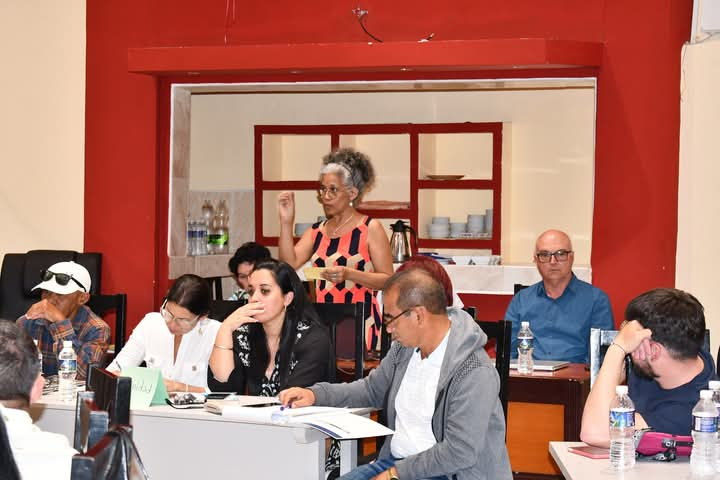
Martí also works in the production of dark-coat pork and Creole hens, freshwater fish and the elaboration of cassava flour, condiments, vinegar, fruit pulp, tomato paste, among other foods that are processed through Binabisí, a mini-industry led by a woman.

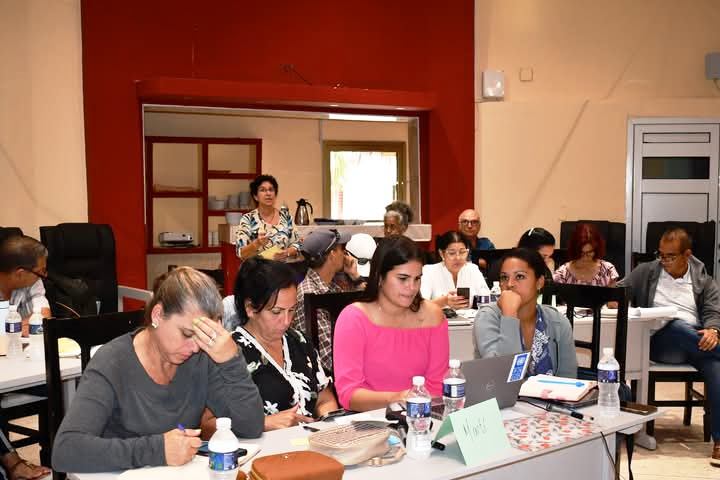
Specialists in Agroecology, producers and new entrepreneurs in the agricultural sector, as well as authorities of the municipality of Martí, in Matanzas, have been participating since Monday in the fourth National Workshop to follow up the Ecological Transition Program towards Sustainable Municipalities in Cuba, which is being held in the province of Villa Clara.
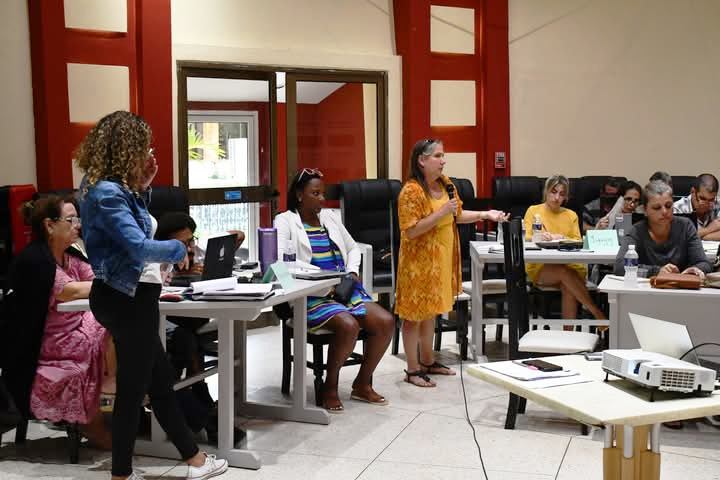
The progress in the first stage of the local food systems component and the guidelines for the second period of work are the main objectives of this meeting, which will last until February 28th.

Technical support and evaluation of the process through workshops and visits to the eight Cuban municipalities where the project is being implemented is part of the strategy to achieve ecological transition and participatory territorial development.

In addition to international organizations, important national counterparts such as the Ministries of Economy and Planning and of Science, Technology and Environment (CITMA) are involved in strengthening the cognitive, financial and material capacities of the local teams in the areas of agroecology, energy and gender opportunities.
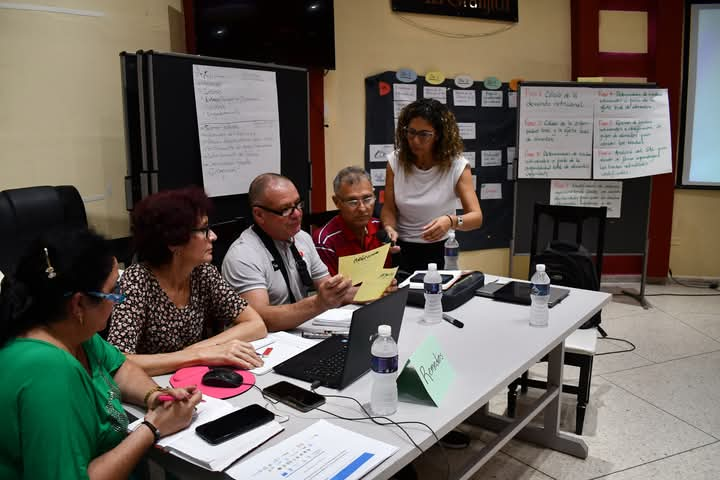
This joint work, which began in 2024 with local diagnoses, today allows us to have projects that respond to programs such as territorial development and the empowerment of women residing in coastal or rural areas.
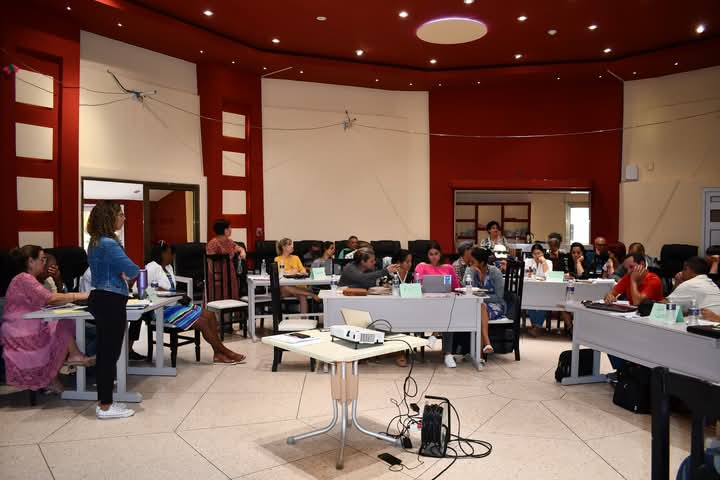
The adequate use and protection of marine-coastal resources, medicinal and potable waters, fertile soils and the transformation of organic waste into energy and bio fertilizers, as well as the possibility of creating new sources of employment, distinguish the project that is currently being evaluated in Villa Clara with the intention of extending the best experiences to other regions of the country interested in gaining in self-management, energy and food self-sustainability, as well as in improving the quality of life of the population.
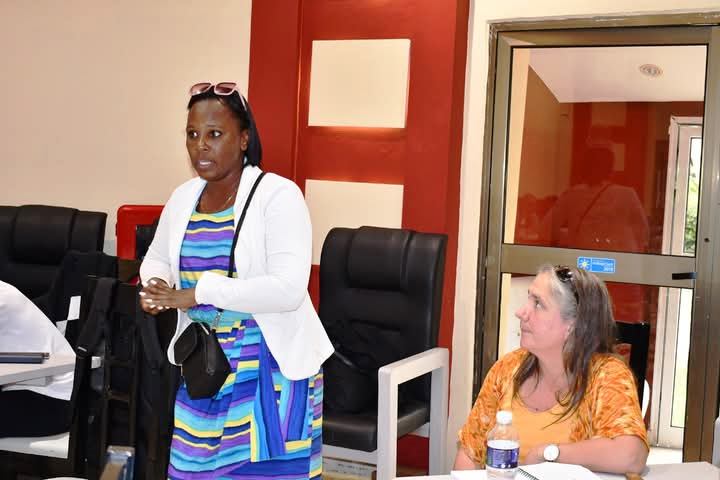
This workshop allows each municipality to have 20 minutes to present its experiences, such as the construction and operation in Martí of «covered lagoon» type biodigesters, which allow the treatment of solid waste without the emission of greenhouse gases into the atmosphere.
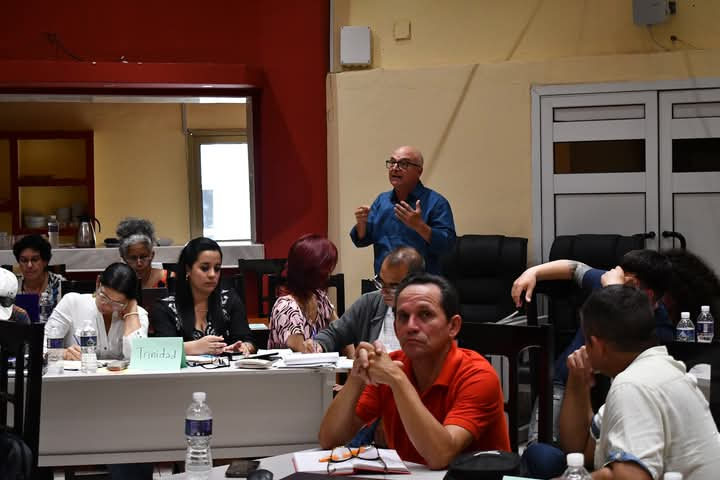
In this first stage in Martí, work is also being done on the production of dark-coat pork and Creole hens, freshwater fish and the production of cassava flour, condiments, vinegar, fruit pulp, tomato paste, among other foods that are processed through Binabisí, a mini-industry led by a woman.
Written by Ana González Goicochea.



